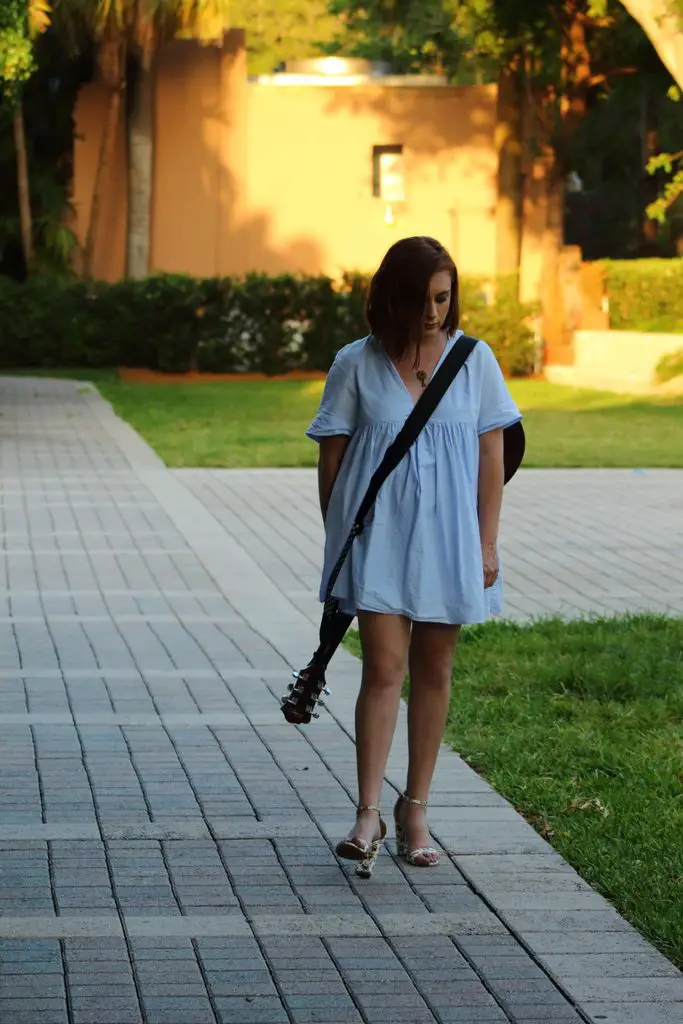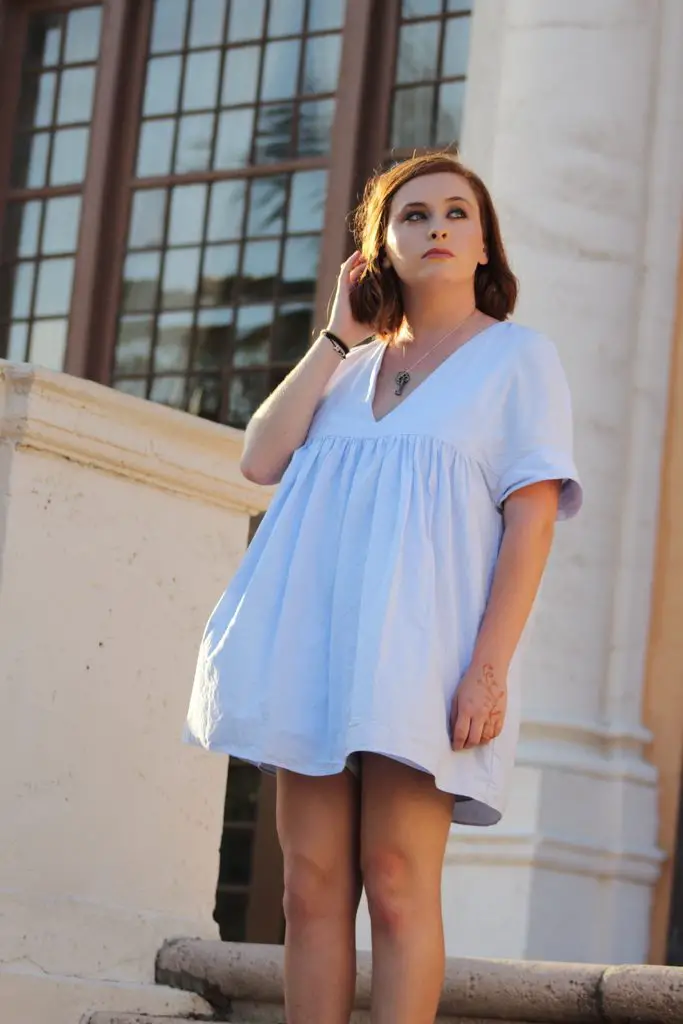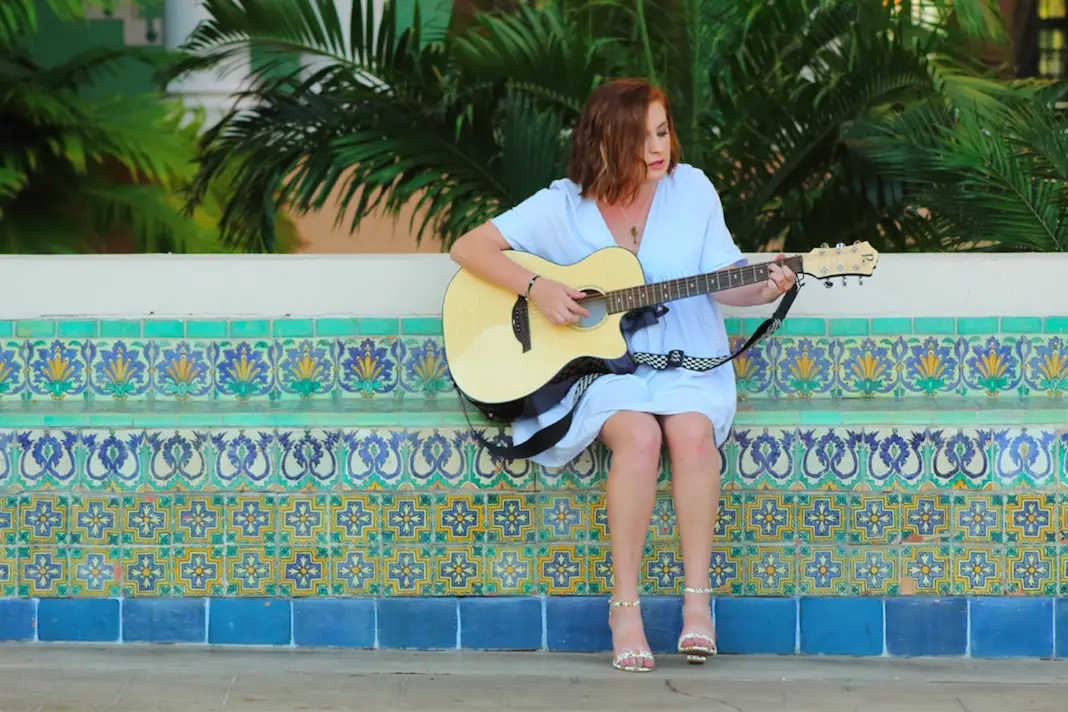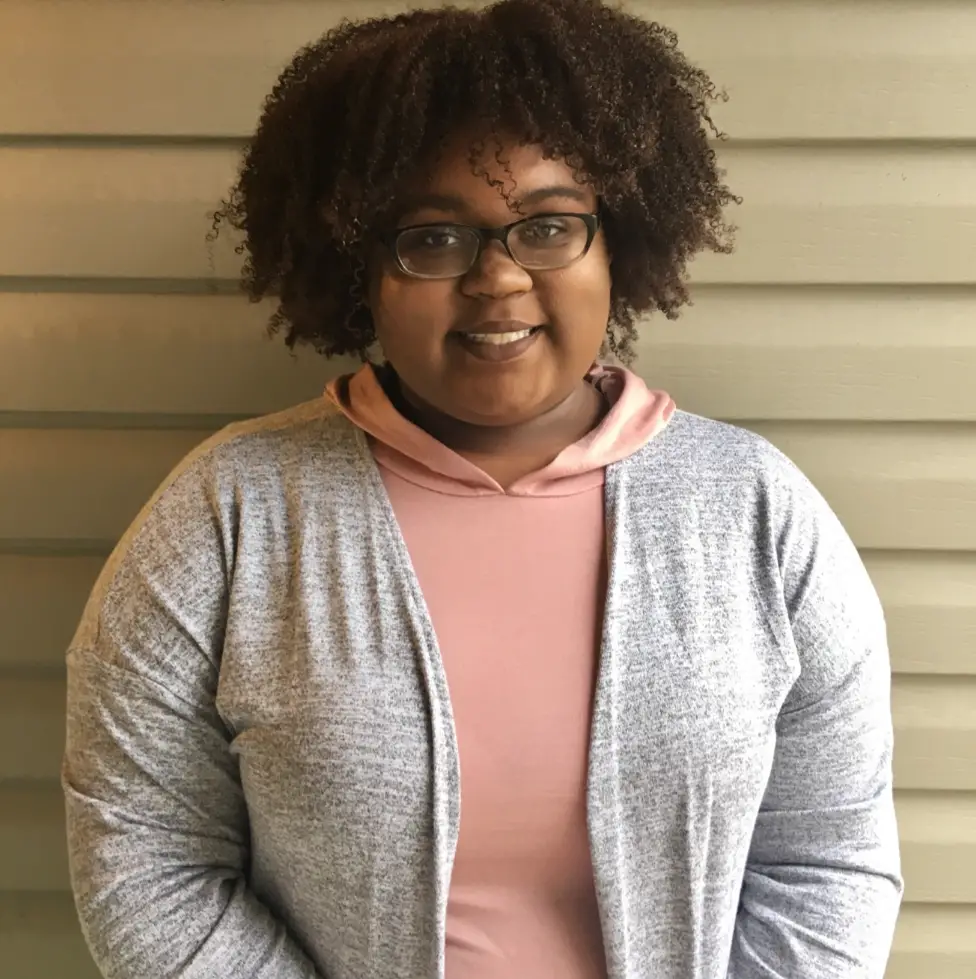Danielle Lowe, a senior at the University of Miami, is a singer-songwriter, mental health advocate, aspiring music therapist and now a published author. Though her first love is music, she started writing her memoir at the beginning of her senior year and has used it to discuss her journey with mental illness and music.
Lowe is also the Miami chapter president of Project HEAL which aims to raise money so those that suffer from eating disorders can afford treatment. If you want to learn about the inspiring student’s journey, check out her book “People Say I’m An Artist, But I Don’t Feel Like One” on Amazon.
Cleo-Symone Scott: I see that you’re a singer-songwriter, how’d you get into that? Who/what are some of your inspirations?
Danielle Lowe: I started playing the violin when I was 8 years old. I got a bit frustrated with the violin because I didn’t have an orchestra or ensemble to play with and so it was just me playing classical pieces alone in my living room. I decided I wanted to do something that I felt I could take outside my house and find an instrument that I could sing with.
I’m mostly self-taught on guitar and I started taking voice lessons when I was 13 and haven’t looked back. I started writing songs when I was 15 just for fun and found that I really enjoyed that as well. Some of my musical inspirations are HAIM, Maggie Rogers, Sara Bareilles and John Mayer.

CSS: Tell us about music therapy and what you hope to achieve in this field.
DL: Most people think that music therapy is just playing music to people in hospitals, but it is way more than that. For the past 4 years, I’ve been learning about all different populations that music therapy can help (special needs, mental health, older adults and more) as well as music therapy techniques to help them achieve various goals depending on their needs.
The difference between music therapy and just playing music is that it is using music to work towards a goal, whether that be emotional, cognitive, motor or social, that is based on a thorough assessment and treatment plan. Personally, I’m very passionate about working as a music therapist in a mental health setting.
This may look like working on a psychiatric unit at a hospital, a treatment center or having a private practice. This past semester, I worked with women in a corrections facility who also have mental illnesses and now am interested in working in a corrections facility as well.
CSS: How have your own experiences with mental illness and mental health inspired your work? How has music helped you on your journey?
DL: I’ve been fortunate to be able to have multiple helpful treatment providers through my struggles with an eating disorder and depression. I’ve also been fortunate to have two supportive parents who recognized my need for help. While I know I did the work to recover, I could not have done it without them.
When I was struggling though, mental health and mental illness was still a taboo subject. I searched online often to find someone who was “doing it,” as in doing well in their recovery, and I found many people deep in their illnesses. It was discouraging and unhelpful.
I promised myself if I ever got out of my mental illness, I would be someone who shed a light on the idea that recovery was possible and hopefully help people feel less alone. My career desires have just been an extension of that. Writing and playing music was and is still one of my main sources of coping.
I found that it helped me express feelings I felt too embarrassed, ashamed or fearful of sharing any other way. I also found that it had a great ability to help me relax and regulate my mood. Originally, I thought I wanted to go into songwriting with the goal of helping other people through that, but I decided music therapy was a more direct and active means of doing so.
CSS: How did the idea for your autobiography come about?
DL: So, the idea for the memoir came to me in August. As part of my music school education, I had to come up with a senior project. It can be anything; a lot of seniors decide to record an EP or do an album of covers. Though I love music, I didn’t feel especially excited about creating some kind of album and I found myself saying “I want to write a book.”
And really, the book came from that moment where I felt like I had to create an album but didn’t want to. That I was in music school, but didn’t want to create music and who am I to be getting a degree in the art if I don’t want to make it? I’m a very introspective person and that got me thinking hard.
Though I’m a music major, my relationship with music has changed a lot over my college career. I’ve been judging that change for a long time and this book is my way of making peace with that change.
CSS: What has the writing process been like?
DL: The actual writing of it came to me very easily once I started going. Basically, once I decided what I wanted each chapter to be and freely wrote a bit on each chapter title, I found that I had a lot to say. I write about this in the book, but really, the hardest part of the process was actually finishing it.
I have had such struggle with completing creative work as I often get too in my head about it, too concerned with it not being right or what I want so close to the end, that I just don’t finish it. It’s not a great pattern, but it happens to me often.
I really had to push myself to challenge my thoughts about it not being a worthwhile piece of art and deciding that yes, I was going to publish this and put it out in the world. I didn’t want it to be just another idea that I let go into the back of my head.
CSS: What will we find when reading your book?
DL: While it is a memoir, I think the subject matter and the topics I discuss like success, identity, struggle and fear are felt by all creative types in one manner, shape or form in regard to their work. It also is about my creative process and how its changed with my mental health improving, which I think is also very common.
I try to attack the stigma regarding great art only being very emotional or deep and having to fulfill the starving artist role. Because I really did, but when I did, I was also very unhealthy and unhappy.
A lot of creative types struggle with mental health issues, whether it’s an eating disorder, drugs or alcohol addiction, and use it as a platform for art. In some capacities, it can be moving and meaningful, but in some cases like mine, I found it to be unhelpful.
Using music as a coping skill for pain is wonderful and I’m all about it, but if you find yourself hurting yourself for creative content, that’s just not healthy. It’s also about establishing yourself as a healthy artist and that your work doesn’t always have to be some depressing, dark thing.

CSS: Tell us about Project HEAL, your role in the organization and what the mission is.
DL: So, Project HEAL is a 501(c)(3) non-profit organization that raises money to help people with eating disorders access treatment. Eating disorders are one of the most underfunded and under-recognized illnesses by insurance companies.
That in combination with the fact that monthly treatment can cost as much as $30,000 leaves most people struggling with inadequate treatment — that should not be the case.
Treatment should be a right, not a privilege and Project HEAL works tirelessly to help send people to treatment as well as raise awareness. They also recently started a mentor program called Communities of HEALing, where people in recovery mentor people starting out in recovery.
They have chapters all around the U.S., Canada and a few internationally. I am the president of the Miami chapter at the University of Miami. Our main goals on campus are mostly fundraising for the national grant fund as well as raising awareness on our campus about eating disorders.
One of our other goals this school year was becoming more widely known in the Miami community and partnering with outside venues. I’m really proud of the work we have done in terms of that. We’ve partnered with a Miami-based bathing suit company called iSHINE365.
They created these really great bathing suits that say “Love. Your. Body.” I saw them on Instagram and fell in love; later on, I contacted them about a partnership. Now we work with them and their ambassador and Sports Illustrated model, Georgia Gibbs; it’s been really wonderful.
iSHINE365 recently had a pop-up at Coachella and benefited Project HEAL which was really exciting. They’ve also donated a portion of the profit on the “Love. Your. Body.” suits to Project HEAL.
We’ve also put on other awareness and fundraising events, like we had a dietician come and speak about mindful eating and had a sizeless clothing sale to promote feeling good in your skin and your clothes, rather than getting caught up in the sizes.
CSS: What’s next for you? Do you think you’ll write more books or will you focus more on your music?
DL: To become a music therapist, I need to get 1,000 hours as a music therapy intern at an approved site by the American Music Therapy Association. I recently accepted an internship at Stonybrook University Hospital in Long Island, NY where I’ll be working on multiple units, such as adult/child psych, oncology and the burn unit.
After I get those hours, I’ll be eligible to take the music therapy certification exam. Then, I hope to get a job working as a music therapist in some sort of mental health setting, like a psychiatric unit or a treatment center. This past semester, I worked at a corrections facility for women with mental illnesses and really enjoyed that; I would definitely consider working in a corrections facility as well.
I want to have my foot in a lot of different places though and want to continue to be a mental health advocate, work with Project HEAL, continue writing music, maybe write another book and potentially go back to graduate school for mental health counseling.
CSS: Any advice for someone recently diagnosed with a mental illness?
DL: I’d actually love to give advice for both someone with a mental illness and also for someone who is afraid of asking for help or being diagnosed. It’s natural to want to minimize our struggles so that we don’t have to change or face difficult emotions, but I promise these issues will continue to follow you and you will have to face it at some point.
You don’t want to look back on your life wishing you sought out help earlier. To someone who has been recently diagnosed with a mental illness, I am proud of you for taking the first step in recovery. There will be many ups and downs in your journey, but there will be people who want to help you at every point along the way. I am proud of you and I hope you continue to fight. Recovery is possible.

















